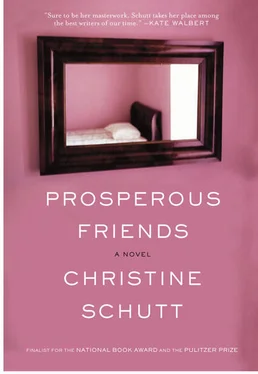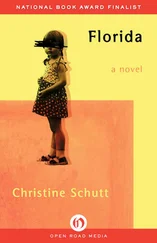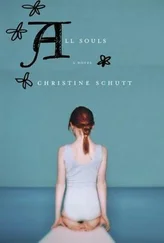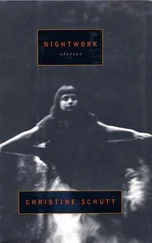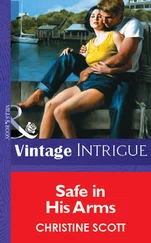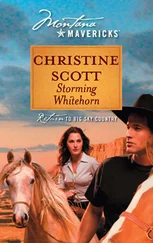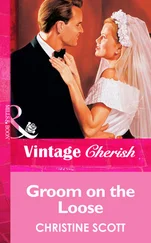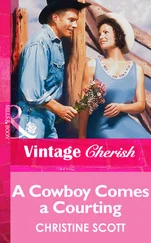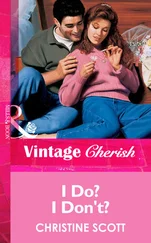Christine Schutt - Prosperous Friends
Здесь есть возможность читать онлайн «Christine Schutt - Prosperous Friends» весь текст электронной книги совершенно бесплатно (целиком полную версию без сокращений). В некоторых случаях можно слушать аудио, скачать через торрент в формате fb2 и присутствует краткое содержание. Год выпуска: 2012, Издательство: Grove Press, Жанр: Современная проза, на английском языке. Описание произведения, (предисловие) а так же отзывы посетителей доступны на портале библиотеки ЛибКат.
- Название:Prosperous Friends
- Автор:
- Издательство:Grove Press
- Жанр:
- Год:2012
- ISBN:нет данных
- Рейтинг книги:5 / 5. Голосов: 1
-
Избранное:Добавить в избранное
- Отзывы:
-
Ваша оценка:
- 100
- 1
- 2
- 3
- 4
- 5
Prosperous Friends: краткое содержание, описание и аннотация
Предлагаем к чтению аннотацию, описание, краткое содержание или предисловие (зависит от того, что написал сам автор книги «Prosperous Friends»). Если вы не нашли необходимую информацию о книге — напишите в комментариях, мы постараемся отыскать её.
Prosperous Friends
Prosperous Friends — читать онлайн бесплатно полную книгу (весь текст) целиком
Ниже представлен текст книги, разбитый по страницам. Система сохранения места последней прочитанной страницы, позволяет с удобством читать онлайн бесплатно книгу «Prosperous Friends», без необходимости каждый раз заново искать на чём Вы остановились. Поставьте закладку, и сможете в любой момент перейти на страницу, на которой закончили чтение.
Интервал:
Закладка:
He breaks off from quoting her and says, “I love your face.”
“And my poems?” she asks.
“‘Transparent Window on a Complex View’” —he exhales the title as if he’s just eaten something airy. “Of course, I like the poems — I like them very much.
“. . what was solid was miraculous:
planes of light, day-old eggs on a white dish. .”
His recall for her work mostly pleases and when they come to the barn bench, he is still plucking lines, and she is listening to herself and how he hears her, and it wins her over that he knows, better than anyone else knows, the great divide between who she is and what she has done.
*
“Wait,” Isabel said, and she thumbed Sally’s cheek. “Just a little ink. Pen, I think. Okay. You’re okay. Did you sleep all right? You weren’t cold?”
“Fine,” she said. “How’s your finger?”
Isabel held up her finger, a swami heavy headed and hung over.
“Poor little fellow,” Sally said.
“Doesn’t hurt so much, just sore. Say,” Isabel said, “we’ve got those tarts left over from last night for breakfast.”
They took coffee and the leftover tarts outside, and it was then Isabel noticed the birds. She was sorry to have missed them in the first place. Sparrows by the hundreds cheeped in the shrubs enough to shake them. She walked down the hill with Sally, delighted by the gregarious birds and all that was moving and inviting from the house to the road and across the road for an uninterrupted view of Acadia, a blue symbol on the tranquil horizon. She told Sally how she often took this walk and how she liked to walk, too, in the Seaside Cemetery. If she didn’t get outside first thing in the morning, she would have trouble breathing. “True!” she said.
“I believe you,” Sally said.
*
“Should I be laughing so soon after?”
The question was how did Isabel feel about the pink sands of Bermuda and Phoebe Chester-Harris on a half shell?
“I can tell you what Ned has to wear in the tropics. I can tell you he’s unpacking some dead guy’s seersucker jacket yellowing at the collar. But will Phoebe let him wear it? That’s the question.”
Did Phoebe have a say in her husband’s clothes? The last time Isabel had seen Ben Harris was at their country house and then he was wearing Barbour or something. Ben Harris was not a thrift-store shopper. No dead man’s shoes for him. Ben Harris in Bermuda in sorbet colors, easy anywhere and with skin that didn’t burn, whereas Ned. . ah, he was such a tender baby.
The Bridge House, on a scenic road treacherously full of blind spots, was locally famous and Clive Harris, she liked to imagine, was more than locally famous, so that pillowy elements attached to Sally and, to a lesser degree, Isabel, and the women lounged with ease in an indefinitely extended summer. The queen of the meadow was nearly gone. (Weren’t the common names for flowers lovely?) The roses had rallied and there were days yet in ‘Longfield’s Beauty.’
Sally drove Isabel to the outdoor concert: African and African American choral music in the field overlooking the reach. The wind was arctic out of Canada and worsened. Isabel was wearing a ski cap; it was that cold. An old man in an overturned poncho staggered, blind and blown. The sight of him! And then the not-so-old woman in a parka wheeling her own wheelchair out of the field after shelter. The hood to her parka was tied tightly against the wind and crumpled her face, and she looked angry, though the music was full of odd notes resolving. There were upright bodies of every size everywhere, dancing. Isabel watched a toddler on legs stiff as stilts scare his mother while older children skidded around picnics or collided on purpose, fell. A boy with blond dreadlocks played on invisible bongos. He played with such passion, the music might be his, yet Isabel and Sally walked past him and nearer the larger sound of the chorus. They walked around the huddled and dancing. Someone called out, “Holly!” and Sally said, “Someone’s kid, I bet.”
“Everyone’s here,” Isabel said, though she knew no one, a few faces, but there, behind the fat woman in fleece, was Mr. Weed. Even Mr. Weed was at the concert, and Sally, seeing the skinny man on a picnic blanket, said yes, sure enough. “Mr. Weed is such a nice guy.”
Really?
“Holly!” they heard again. They saw Stephanie who worked at the post office and the lithe woman with long white hair who sold them the goat cheese at the co-op. Sally said her name was Helen Friendlander; Helen was behind the co-op’s hippie baskets from Ghana.
But where were the black faces, the migrants who picked in the blueberry barrens?
Were they Haitian, Isabel wondered, or what?
Sally said, “The Haitians pick apples and the Mexicans pick blueberries.” She said, “The Guatemalans and Hondurans are loggers. The lobsters,” she said, “are for white folks to get.”
Isabel blew into her hands to warm them although it was warmer near the prow of the chorus and Isabel was not so cold that she couldn’t stand and watch, without shivering, as an older man danced with a younger woman. They were not married; at least Isabel thought they were not married. “But why do I think that?” she asked Sally.
Sally said, “They might be anything to each other.”
They danced, this ordinary man and younger, ordinary woman. They hopped and clapped, hooked arms, and went in circles.
Epilogue
Aura Kyle puts her father’s best shoes in her lap. He wore these shoes when he acted as a driver for Mrs. Pfizer, which he did with greater regularity in the last years of his life. A dark walnut color, the shoes are glossy with his care — they could be mistaken for new. Someone else would gladly wear them, but Aura knows she will not give her father’s shoes to anyone. Heart hobbled at the end, her quiet father yielded of necessity and put aside his job and his uniform — the green shirt with the EBS stitching, the pin with his name, Dan Carter. Dan Carter, one of the many Carters in Hancock County, now wore clothes better suited for a salesman, though he was largely unemployed. At home and short of breath, he sat at the card table, sat for hours every afternoon making toothpick ashtrays and pencil holders. In a better world her father would have died at the card table in rolled sleeves and good shoes; instead, he died seated on a crate in the middle of the frozen lake. Ice fishing! Gone alone, he must have known what he was risking, but why had his wife let him go? Aura’s mother called the boys for a search party before she remembered he had told her his intentions, yet she had let him go knowing, as she must have known, the icy air would kill him.
The father Aura remembers sat at the kitchen table polishing his shoes — these shoes, cold and heavy in her lap. The shoe trees preserve their shape and cork the ominously stained linings. It must have hurt to wear these shoes, but anyone finding him in an accident on the road would think he was a salesman, if not a banker, when all along her father was a man who liked to fix motors and get greasy. Ed Kyle is a dirt man and Aura is wed to him and can say, not without astonishment, that she has known him for fifty years, forty-four of which they have been married.
Aura and Ed Kyle have a daughter, named Nancy, who lives with a man from Brewer. They don’t want to marry. Rick’s divorced, already has kids, doesn’t want any more. His children call Nancy Nancy. Why can’t they call Nancy something affectionate? That way, they might call Aura something; that way, she would be more to them than what she is now, which is what?
A puffball granny in a rickracked house or a crone in a perfume of soup, laundry baskets stacked in the back of the truck, full of sheets hardly slept in by folks on zigzagging routes — Rockport, Belfast, Stonington, Acadia. The ghosts of them, those guests, who crackled up the gravel drive at night, expected, waylaid strangers. Once, a small woman, not so young, drove in, high beams wheeling into the outraged woods on her noisy approach. She was traveling with a German shepherd who slept in the car. The car was the dog’s crate, she explained, early the next morning after she had walked him down the drive, along the edge of the woods. Duke or Buck, he was a savage-looking muscle with an oily coat, a prodigious defecator and marker — piss-bleached holes in the modest lawn. His owner left the car windows down. Did the big dog rove? The small woman and her dog didn’t stay long enough for Aura to find out much. The small woman, who could have used a breakfast, skipped it.
Читать дальшеИнтервал:
Закладка:
Похожие книги на «Prosperous Friends»
Представляем Вашему вниманию похожие книги на «Prosperous Friends» списком для выбора. Мы отобрали схожую по названию и смыслу литературу в надежде предоставить читателям больше вариантов отыскать новые, интересные, ещё непрочитанные произведения.
Обсуждение, отзывы о книге «Prosperous Friends» и просто собственные мнения читателей. Оставьте ваши комментарии, напишите, что Вы думаете о произведении, его смысле или главных героях. Укажите что конкретно понравилось, а что нет, и почему Вы так считаете.
